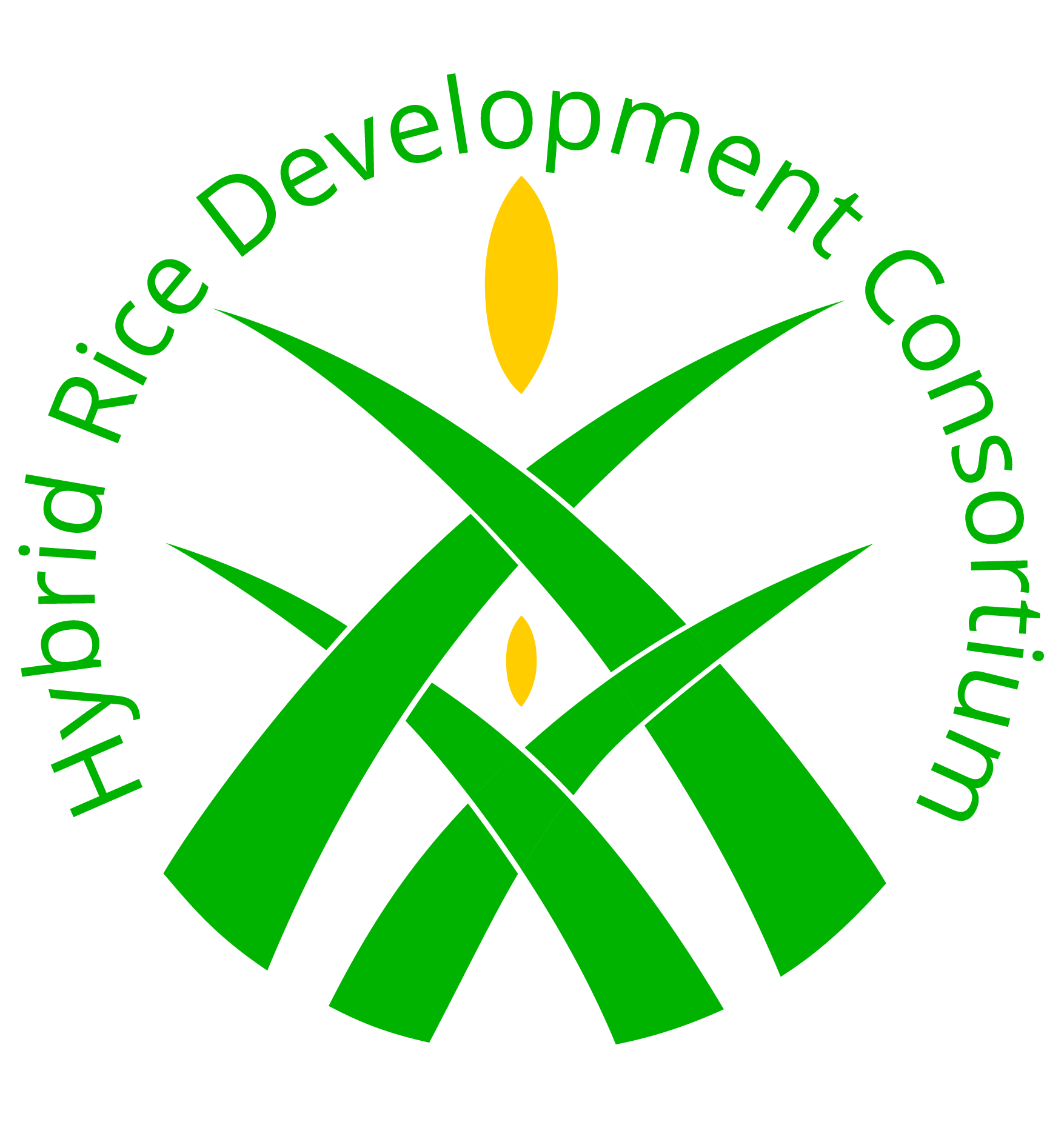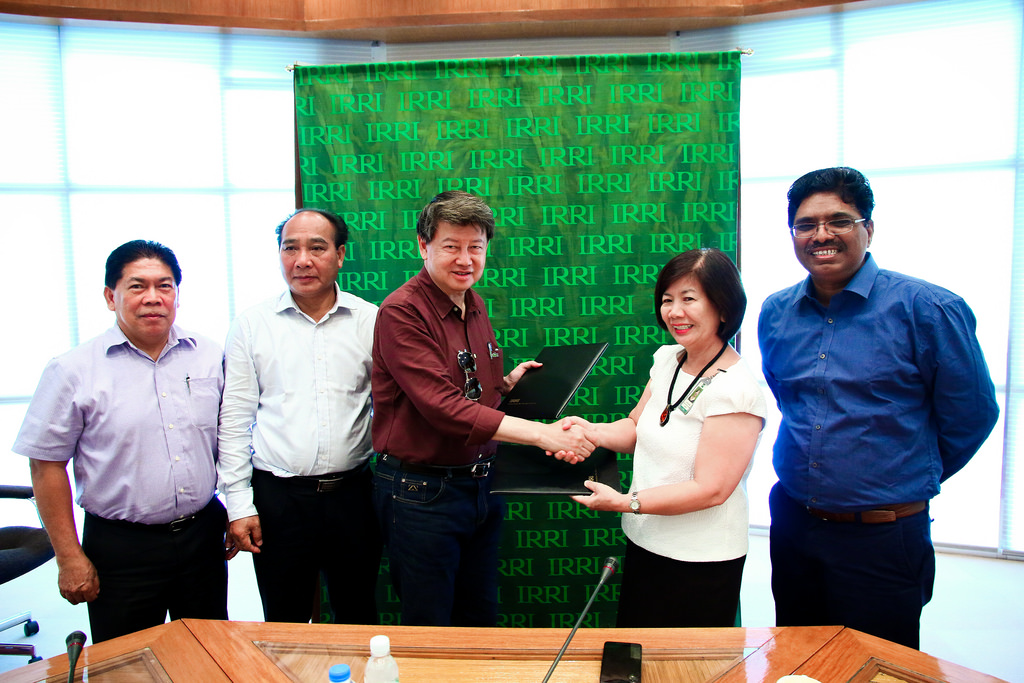LOS BAÑOS, Philippines—One of the leading hybrid rice seed producers in the Philippines, SL Agritech Corporation, signed an agreement at the International Rice Research Institute (IRRI) on May 3 to join the Hybrid Rice Development Consortium (HRDC).
According to HRDC coordinator and hybrid rice breeder Dr. Jauhar Ali, as an HRDC member, SL Agritech Corporation will have access to IRRI’s recommended hybrid rice varieties and parental lines for testing.
“We are happy to join HRDC. There is no doubt, of course, that IRRI is the world authority in rice,” shared Dr. Henry Lim Bon Liong, chairman and CEO of SL Agritech Corporation. “Although we have our own research and development team, it will be great to compare what IRRI is doing and what we are doing. Through this, we will
be able to speed up the development of hybrid rice varieties,” he added.
“I’m sure the sharing of knowledge and experiences will be really helpful for the consumers,” noted IRRI’s director for external relations, Dr. Corinta Guerta.
Originally established in the Philippines, SL Agritech Corporation now operates in three other countries: Bangladesh, Indonesia, and Vietnam. The company has also started operating in Myanmar and India. However, the corporation is not all about profit. “Our company works hard to support organizations that help farmers,” said Dr. Frisco Malabanan, senior technical and promotion consultant of SL Agritech.
Last year, the company pioneered a rice bucket challenge, during which Dr. Liong gave 5,000 buckets of rice to 5,000 poor families in the drought-stricken areas of Mindanao and challenged big business owners and even celebrities to do the same. “We have a strong Corporate Social Responsibility (CSR) component in our programs and that’s one of the reasons I joined SL Agritech,” said Dr. Malabanan.
Other news items
IRRI Breeder To Address Hybrid Rice Adoption, Advances at Asian Seed Congress
BANGKOK: APSA’s Special Interest Group on Hybrid Rice will meet at the upcoming Asian Seed Congress to discuss the latest developments in research and market challenges. Rice is the most important staple food crop for more than half of world’s population. In the Asian...
Leading vegetable seed producer in India eyes hybrid rice seed production
LOS BAÑOS, Philippines—One of India’s leading vegetable seed producers is expanding its products to include hybrid rice. The company recently joined the Hybrid Rice Development Consortium (HRDC) that promotes innovation and access to new germplasm and information on...
Rice sufficient in three years
Rice sufficiency may not be a far-fetched dream for the Philippines after all, if the country modernizes its agricultural sector. IRRI is working with the Philippine Department of Agriculture to help the country produce enough rice for millions of Filipinos. Hybrid rice is reportedly one crucial component of the plan.
The Philippines could be rice sufficient by 2020
By 2020, the Philippines could be self-sufficient in rice. But with shrinking lands, climate change, and other challenges, the plan to be self-sufficient by 2020 can only be fulfilled by using modern agricultural strategies like hybrid rice. Learn more about IRRI’s work on hybrid rice.
The Syngenta trainees met Dr. Jauhar Ali for Hybrid rice discussion at the IRRI HQ.
The Syngenta trainees met Dr. Jauhar Ali for Hybrid rice discussion at the IRRI HQ. They had discussions on good quality seed production and informed them on HRDC and two, line hybrid seed production. Other news items

